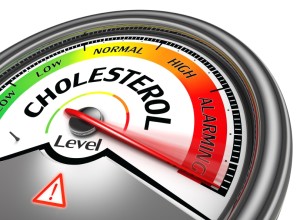 Using Coconut Oil to Lower Cholesterol.
Using Coconut Oil to Lower Cholesterol.
Polyunsaturated fat, monounsaturated fat and other types of saturated fat contribute to increase in cholesterol production in the liver. This fat spreads in the blood stream and hardens the arteries thus increasing the risk of developing stroke, heart disease and other coronary diseases. The unique saturated fat in coconut oil is made up of MCFAs (Medium Chain Fatty Acids) that provide various health benefits that include lowering the levels of bad cholesterol in a natural way.
All about using coconut oil for cholesterol
Cholesterol is produced by the liver in order to build lipoproteins that carry fats in the bloodstream. However, in order to understand how natural coconut oil affects the level of cholesterol in the body, we must distinguish between bad cholesterol and good cholesterol.
Bad cholesterol is known as LDL (low density lipoprotein). It normally builds up in the arteries and fills the fat cells. On the other hand, HDL (high density lipoprotein) is good protein. HDLs sweep all unused fats in the bloodstream back to the liver. Therefore, it is desirable to have sufficient quantities of HDL while high levels of LDLs are a health risk.
Therefore, the real cholesterol level is the difference between high density lipoproteins and low density lipoproteins.
What is the impact of coconut oil on cholesterol?
Coconut oil does not cause the accumulation of bad cholesterol because it contains medium chain fatty acids (MCFAs) which have very tiny chemical structures. Besides being easily digested, MCFAs pass through membranes easily and they are transported to the liver which converts them into energy immediately. Since, MCFAs are not stored in the body as fat; they neither clog arteries nor contribute to weight gain. However, unlike the HDLs, low density lipoproteins (LDLs) are digested slowly because they are large.
Moreover, medium chain fatty acids do not require any pancreatic enzymes in order to be digested because they are so small. They are mainly used in the liver to produce of energy and not body fat or arterial plaque.
Using coconut oil for cholesterol increases the level of HDL (good cholesterol). It is better to have a higher the level of HDL because it protects you against heart diseases caused by LDL accumulation. Moreover, coconut oil also contains polyphenol which prevents oxidation of cholesterol. This helps prevent atherosclerosis (arteriosclerotic vascular disease) which is the thickening of arteries due to accumulation of cholesterol, triglyceride and other fatty materials.
How can you measure the level of cholesterol accurately?
Total cholesterol includes both HDL (good cholesterol) and LDL (bad cholesterol). Therefore, it is not an accurate indicator of the risk of heart disease. Almost half of the people who die from heart diseases have normal levels of total cholesterol. Cholesterol ratio is a more accurate measure of heart disease risk because it takes into account the amount of HDL in the total cholesterol.
Coconut oil is made up of almost 50 percent lauric acid. Besides being quite nutritious, lauric acid lowers bad cholesterol while increasing good cholesterol. This is why people who live in coconut growing regions such as the Philippines and Thailand have a relatively low rate of heart diseases as compared to people in other regions.
So Generally, using coconut oil for cholesterol control is very beneficial and it will certainly help maintain healthy cholesterol levels and in turn, reduce the risk of heart disease.


